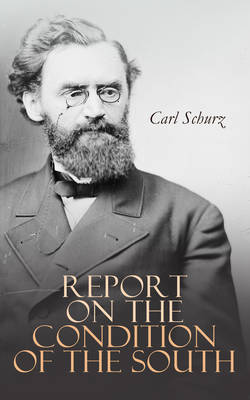Читать книгу Report on the Condition of the South - Schurz Carl - Страница 16
На сайте Литреса книга снята с продажи.
MUNICIPAL REGULATIONS.
ОглавлениеThe motives and spirit bringing forth such ideas found a still clearer expression in some attempted municipal regulations. In no State within the range of my observation had, at the time of my visit, so much progress been made in the reorganization of local government as in Louisiana. In most of the parishes the parish authorities had exercised their functions for some time; in others the organization was less complete. Governor Wells informed me that he had filled the parish offices with men recommended to him by the people of the parishes, and it is fair to assume that in most cases the appointees represented the views and sentiments of the ruling class. Some of the local authorities so appointed furnished us an indication of the principles upon which they thought it best to regulate free labor within their jurisdiction.
Mr. W.B. Stickney, agent of the Freedmen's Bureau at Shreveport, Louisiana, reported to the assistant commissioner of the bureau in Louisiana as follows: "August 1.—The following is a literal copy of a document brought to this office by a colored man, which is conclusive evidence that there are those who still claim the negro as their property:
"'This boy Calvin has permit to hire to whom he pleases, but I shall hold him as my property until set free by Congress. July 7, 1865. (Signed.) E.V. TULLY.'"
The spirit of the above also made its appearance in another form, in the action of the police board of the parish of Bossier, which was an attempt to revive at once the old slave laws, and to prevent the freedmen from obtaining employment (away) from their former masters. The gist of the enactment alluded to is contained in the paragraph directing the officers on patrol duty "to arrest and take up all idle and vagrant persons running at large without employment and carry them before the proper authorities, to be dealt with as the law directs." A regulation like this certainly would make it difficult for freedmen to leave their former masters for the purpose of seeking employment elsewhere. The matter was submitted to Brevet Major General Hawkins, commanding western district of Louisiana, who issued an order prohibiting the parish police forces from arresting freedmen unless for positive offence against the law.
Clearer and more significant was the ordnance passed by the police board of the town of Opelousas, Louisiana. (Accompanying document No. 34.) It deserves careful perusal. Among a number of regulations applying exclusively to the negro, and depriving him of all liberty of locomotion, the following striking provisions are found:
